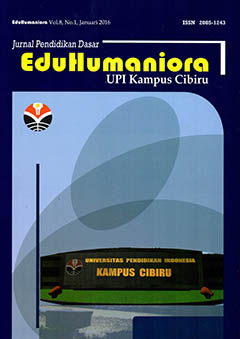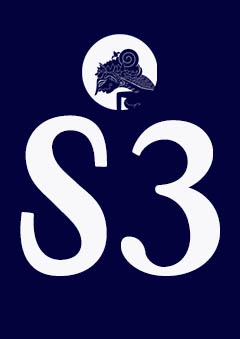Development Needs Analysis Science Literacy Assessment Instruments Matchup Type Wordwall Based Earth Change Materials
Abstract
Developing scientific literacy assessment instruments on earth change material for elementary school students is important. The development of scientific literacy-based assessment instruments is an effort to measure students' scientific literacy abilities. The research aims to develop a creative and innovative assessment instrument, namely matchup. Initial research was used to capture the needs for scientific literacy assessment instruments needed by teachers and students. The needs analysis research method uses qualitative research to collect initial data. Data collection techniques used range from observation, interviews, and documentation. The data is analyzed interactively and effectiveness tests are carried out to obtain the empirical benefits of the tool in the field. Research development on the products produced is done through expert judgment by instrument experts, media experts, and stakeholders (teachers as users). The research showed that the matchup game was very effective in carrying out science learning evaluations. Product analysis is very effectively used in assessment activities in science learning for elementary school students, especially in material regarding changes in the earth caused by humans.
Keywords
Full Text:
PDFReferences
Arikunto, S. (2015). Research Procedures: A Practical Approach. Rineka Cipta.
Astuti, WP, Prasetyo, APB, & Rahayu, ES (2014). Development of an Authentic Assessment Instrument Based on Scientific Literacy on Excretory System Material. UNNES Journal, 43(2), 94–102.
Aswita, D. et al. (2022). No Title. In Literacy Education: Meeting 21st Century Skills. K-Media. https://books.google.co.id/books?id=y3h8EAAAQBAJ&lpg=PA1&ots=ISWF9_5Kha&dq=Aswita%2C D.%2C et.al. (2022). Literacy Education%3A Fulfilling 21st Century Skills. Yogyakarta%3A K-Media.&lr&pg=PA1#v=onepage&q=Aswita, D., et.al. (2022). Literacy Education: Memen
Ashhari, A. (2015). Profile of Increasing Students' Scientific Literacy Abilities Through Scientific Learning. Al-Biruni Physics Education Scientific Journal, 4(2), 179–191. https://doi.org/10.24042/jpifalbiruni.v4i2.91
Branch, R. M. (2009). Approach, Instructional Design: The ADDIE. In Department of Educational Psychology and Instructional Technology University of Georgia (Vol. 53, Issue 9).
Dwi, A., Permatasari, A., Handayani, D., Siswati, BH, Sains, MP, Keguruan, F., & Jember, U. (2023). Journal of Pedagogy: Introduction to Journal of Pedagogy: 655–665.
Fitriani, N., Efendi, I., & Harisanti, BM (2019). DEVELOPMENT OF A SCIENCE LEARNING MODULE BASED ON LOCAL WISDOM OF SEMBALUN VILLAGE TO IMPROVE COGNITIVE LEARNING OUTCOMES OF MTs STUDENTS. Bioscientist: Biological Scientific Journal, 7(1), 68. https://doi.org/10.33394/bjib.v7i1.2386
Hidayah, N., & Lestari, W. (2021). Analysis of Needs for Development of Android-Based Literacy Program Assessment Instruments for Yogyakarta National High School Students. Citizen: Indonesian Multidisciplinary Scientific Journal, 2(1), 2022. https://doi.org/10.53866/jimi.v2i1.22
Irsan, I. (2021). Implementation of Scientific Literacy in Science Learning in Elementary Schools. Basicedu Journal, 5(6), 5631–5639. https://doi.org/10.31004/basicedu.v5i6.1682
Kimianti, F., & Prasetyo, Z. K. (2019). Development of a Science E-Module Based on Problem Based Learning to Improve Students' Scientific Literacy. Kwangsan: Journal of Educational Technology, 7(2), 91. https://doi.org/10.31800/jtp.kw.v7n2.p1--13
Kristiantari, MGR, Wayan Widiana, I., Tristiantari, NKD, & Rediani, NN (2022). Impact of Prezi Media-Assisted Problem-Based Learning on Scientific Literacy and Independence of Elementary School Students. Journal of Education and E-Learning Research, 9(3), 184–191. https://doi.org/10.20448/jeelr.v9i3.4185
Lestari, D., & Setyarsih, W. (2020). Feasibility of a Formative Assessment Instrument Based on Students' Scientific Literacy on Global Warming Material. IPF: Innovations in Physics Education, 9(3), 561–570. https://doi.org/10.26740/ipf.v9n3.p561-570
Mahmudah, D. (2023). 3 1,2,3. 08(September), 4734–4745.
Novita, M., Rusilowati, A., Susilo, S., & Marwoto, P. (2021). Meta-analysis of students' scientific literacy in Indonesia. Unnes Physics Education Journal, 10(3), 209–215.
Ono, S. (2020). Validity and Reliability Test of the SG Posture Evaluation Measuring Instrument. Journal of Physical Therapy, 5(1), 55–61. https://doi.org/10.37341/jkf.v5i1.167
Pratiwi, SN, Cari, C., & Aminah, NS (2019). 21st Century Science Learning with Students' Scientific Literacy. Journal of Physics Materials and Learning, 9(1), 34–42.
Summaries, C.E. (2019). What Students Know and Can Do. PISA 2009 at a Glance, I. https://doi.org/10.1787/g222d18af-en
Sutiani, A., Situmorang, M., & Silalahi, A. (2021). Implementation of an Inquiry Learning Model with Science Literacy to Improve Student Critical Thinking Skills. International Journal of Instruction, 14(2), 117–138. https://doi.org/10.29333/iji.2021.1428a
Widoyoko, EP (2012). Learning Program Evaluation. Learning Library.
Yuliasih, F., & Sarwi. (2020). 21st Century Skills-Based Assessment Instrument to Measure the Science Literacy Abilities of Fannie High School Students. UPEJ Unnes Physics Education Journal, 9(3), 320–330.
DOI: https://doi.org/10.17509/eh.v16i2.64920
Refbacks
Copyright (c) 2024 EduHumaniora | Jurnal Pendidikan Dasar Kampus Cibiru
EduHumaniora: Jurnal Pendidikan Dasar
Published in collaboration Program Studi PGSD UPI Kampus Cibiru
and
HDPGSDI
This work is licensed under a Creative Commons Attribution-ShareAlike 4.0 International License.















